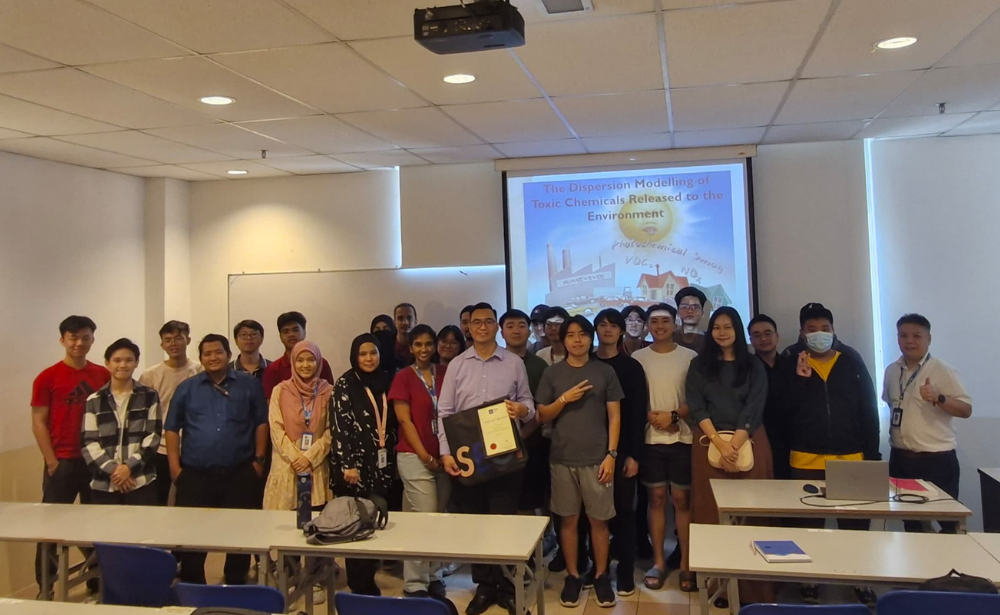SEGi University recently hosted an impactful industrial lecture featuring Tan Yen Chen, Manager of the Industry & Environment department at Aurecon, who delivered an eye-opening session on air dispersion modelling and its vital role in managing toxic chemical releases into the environment. Organised by the IChemE Student Chapter, IEM-SEGi Student Section, and the Department of Chemical Engineering under FoEBEIT, the talk equipped future engineers with a practical understanding of how predictive tools can help mitigate pollution and protect public health.
Students were introduced to the critical function of air dispersion modelling in industrial operations, especially for facilities such as chemical plants, refineries, and manufacturing hubs. Tan walked attendees through the scientific principles and practical applications of Gaussian Plume Models—commonly used to predict how pollutants behave once released into the air. With pollution levels in urban areas rising and industrial activities intensifying, understanding dispersion dynamics is key to reducing environmental impact.
According to the World Health Organization, air pollution is responsible for over 7 million premature deaths globally each year. In Malaysia, air quality concerns have gained increased urgency, making it crucial for future engineers to understand their role in regulatory compliance and emissions control. Tan’s lecture included real-world case studies that demonstrated how industry specialists use modelling tools to inform operational decisions, meet environmental regulations, and optimise processes.
The session also explored how environmental specialists collaborate with plant operators to achieve emission reductions without compromising production efficiency. These insights not only bridged academic learning with industry realities but also reinforced the critical role that engineering professionals play in sustainable development. Students left the session with a deeper appreciation of how science, policy, and technology intersect to create cleaner, safer industrial environments.
The event ultimately highlighted the importance of training future engineers to become stewards of environmental responsibility. By equipping them with both the technical skills and ethical outlook required to navigate complex industrial challenges, initiatives like this help shape a new generation of engineers committed to balancing progress with sustainability.
This event is organised in support of the following United Nations Sustainable Development Goals (SDG):
SDG 3: Good Health and Well-being
SDG 9: Industry, Innovation and Infrastructure
SDG 13: Climate Action

